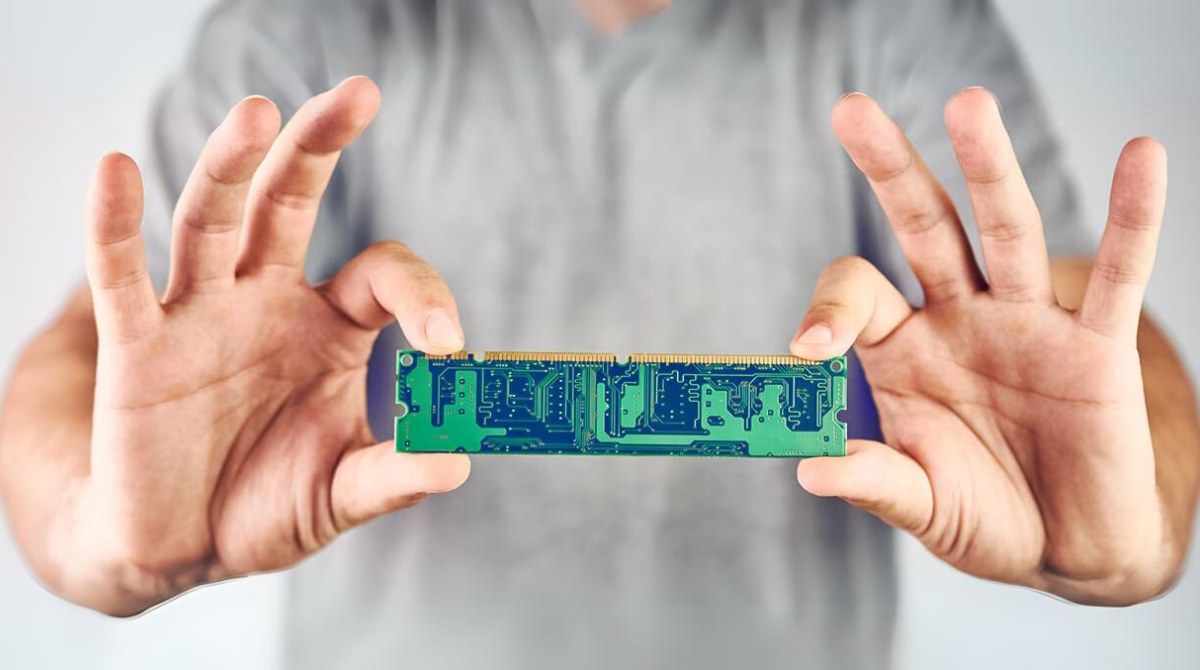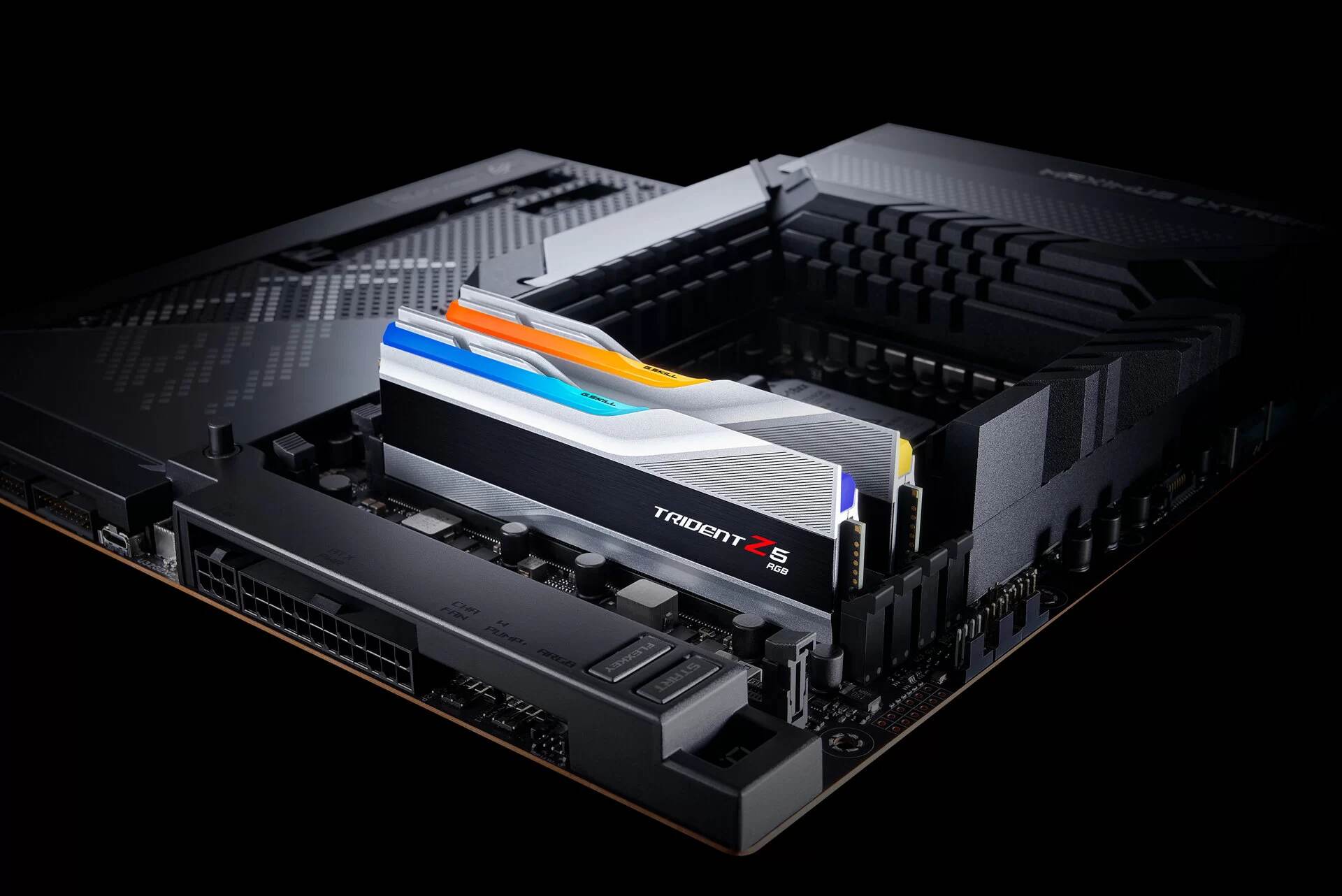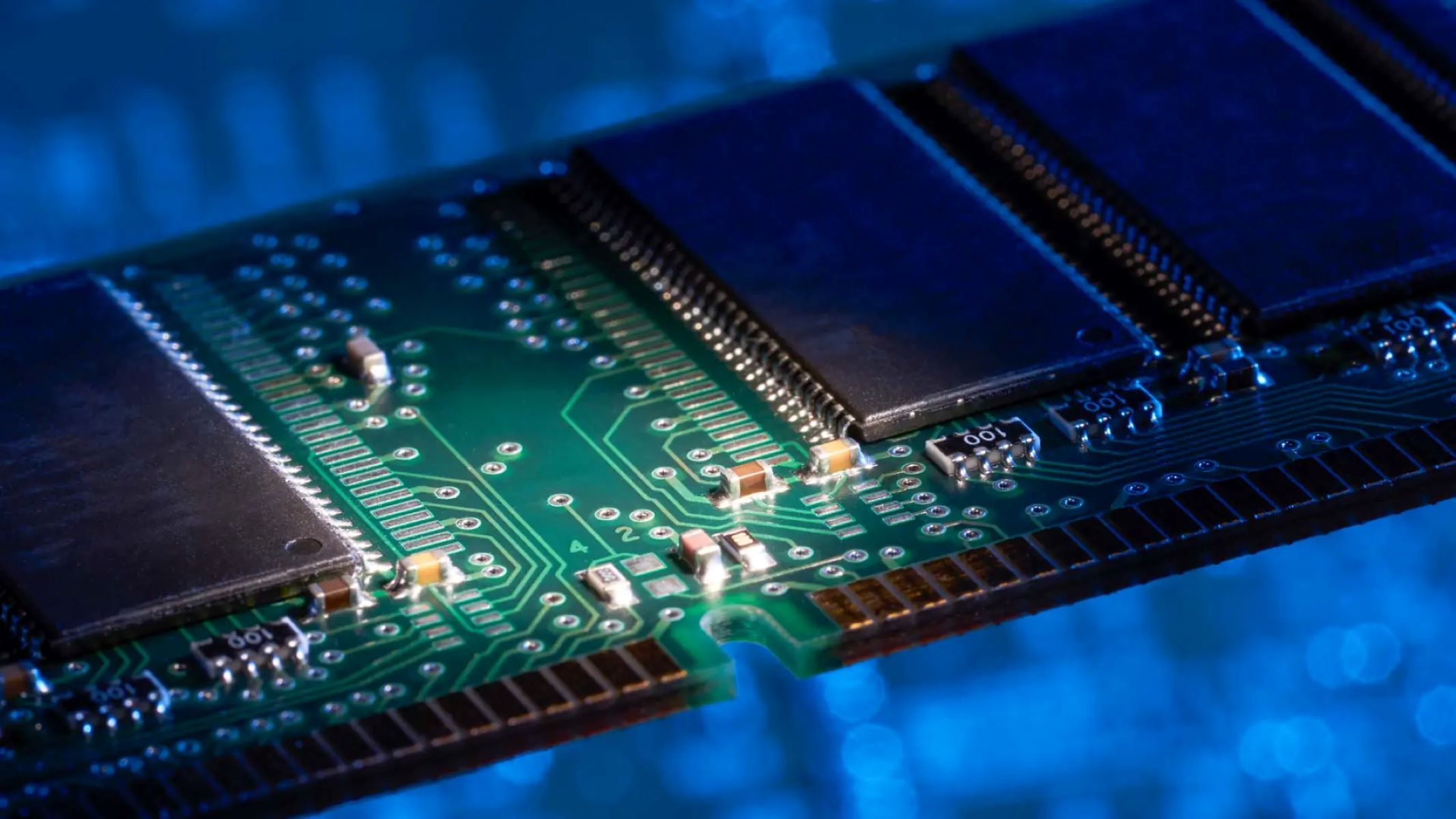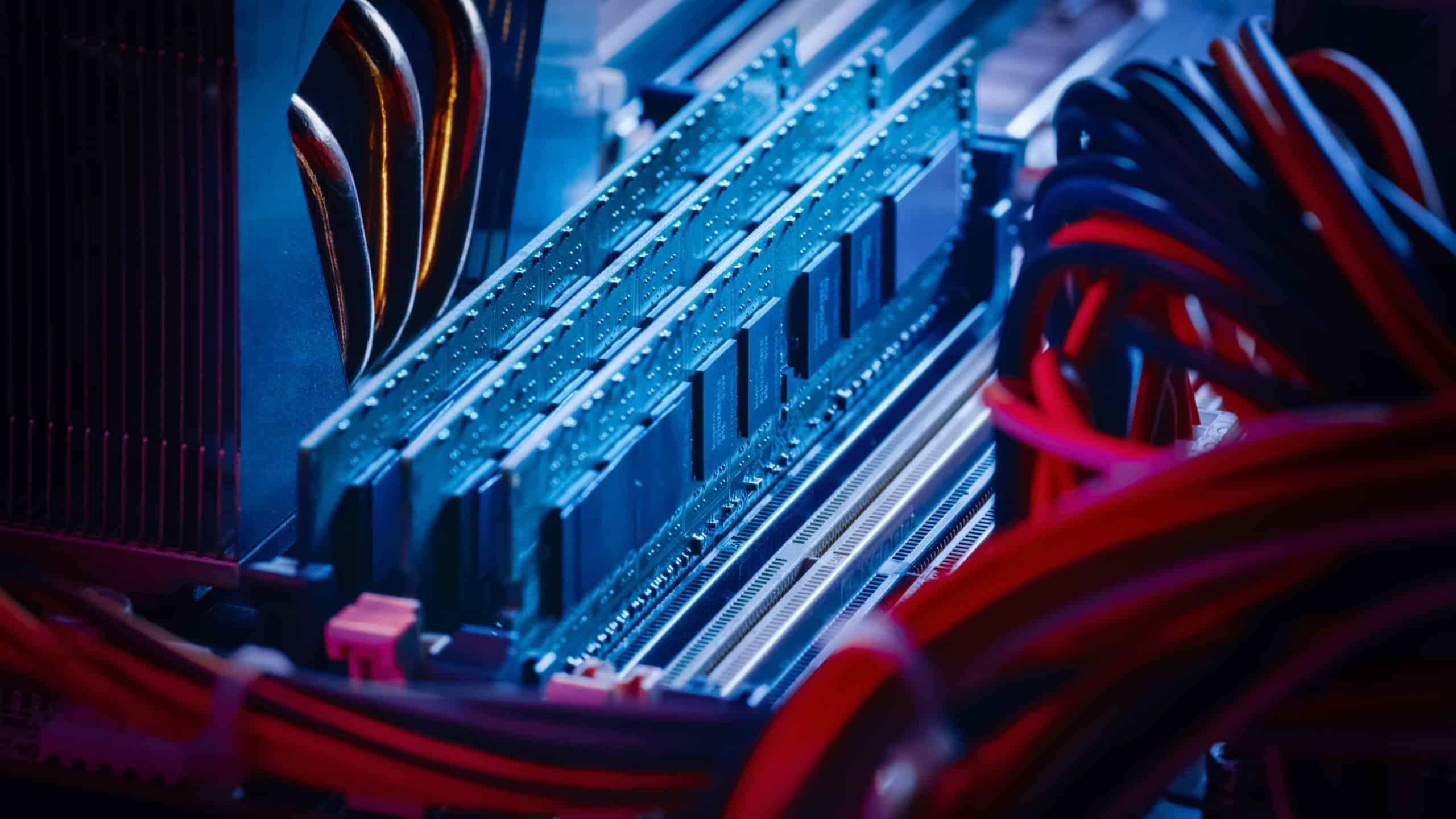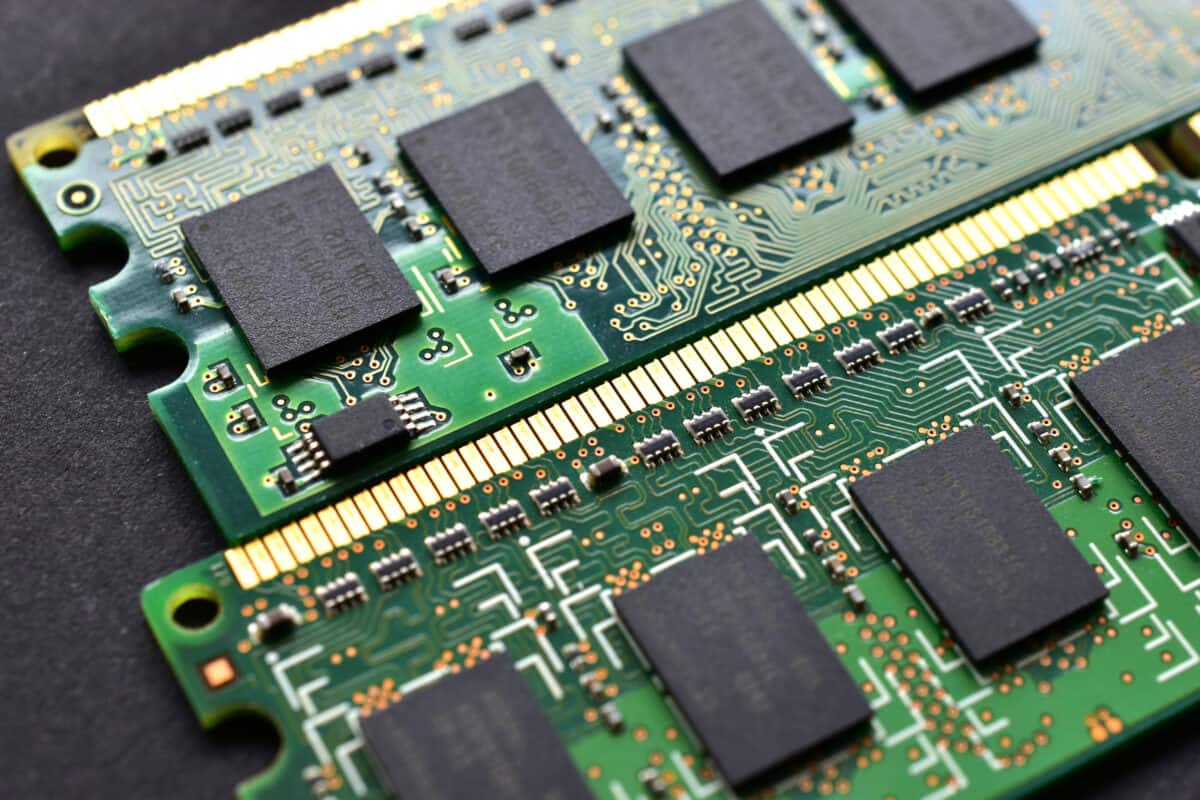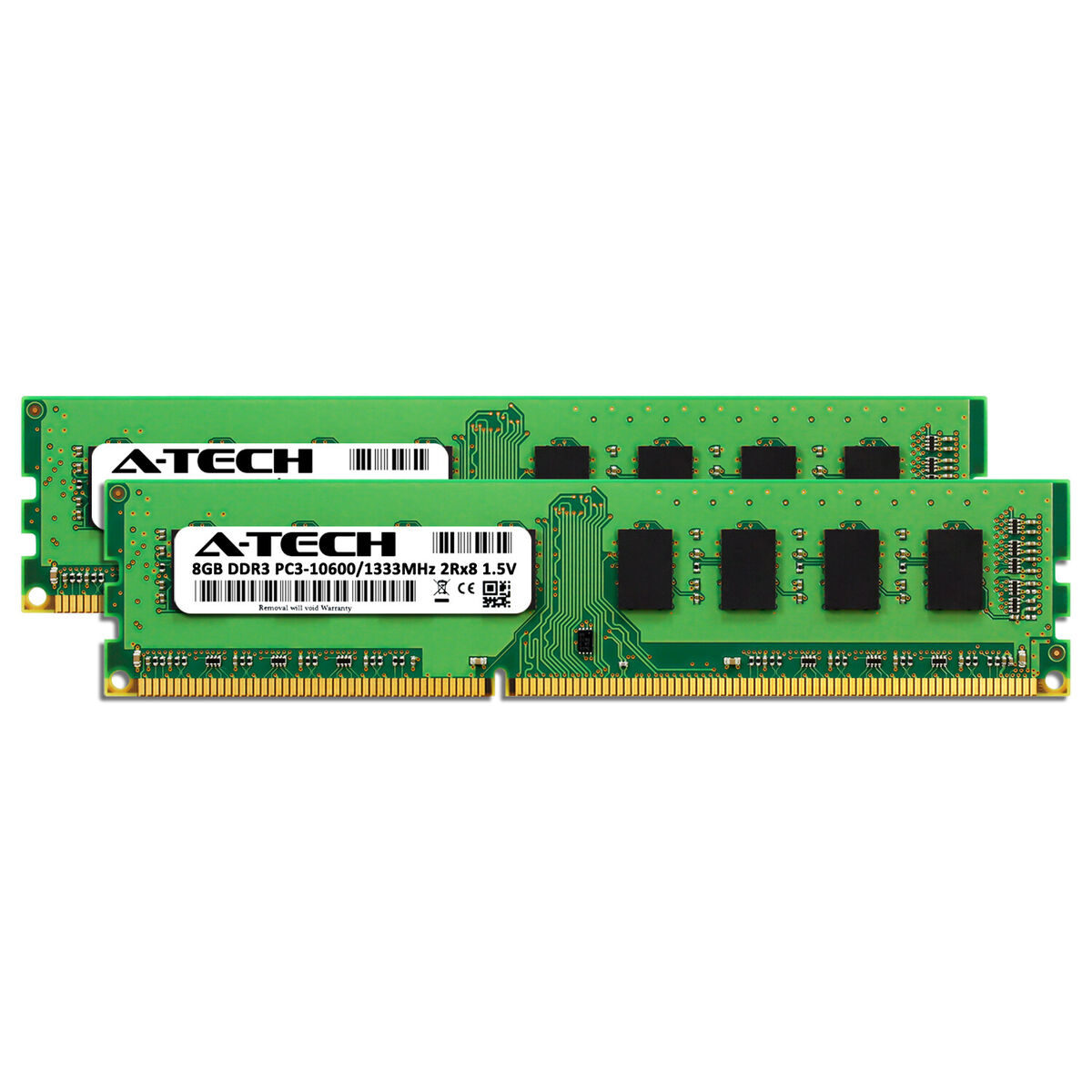Introduction
Welcome to the world of computer memory! When it comes to computers, you might have heard the term “RAM MHz” being thrown around. But what does it actually mean? In this article, we’ll dive deep into the world of RAM MHz and explore its impact on computer performance.
RAM, which stands for Random Access Memory, is a vital component of any computer system. It is responsible for temporarily storing data that your computer needs to access quickly. The “MHz” in RAM MHz refers to the frequency at which the RAM operates, determining how fast the memory can process data.
The RAM MHz value is an essential factor when it comes to computer performance. Higher MHz means faster data transfer and overall system responsiveness. This article will help you understand the significance of RAM MHz, how it affects your computer’s performance, the factors that influence it, and how to choose the right RAM MHz for your needs. So, buckle up and get ready for a fascinating journey into the world of RAM MHz!
What does RAM MHz mean?
RAM MHz refers to the speed or frequency at which your computer’s RAM operates. It measures how many cycles of data transfer the RAM can complete per second. The unit “MHz” stands for “megahertz,” which represents one million cycles per second.
When you see a RAM module labeled with a certain MHz value, such as 2400MHz or 3200MHz, it indicates the maximum speed at which the RAM can function. Higher MHz values indicate faster data transfer rates, resulting in better overall performance. It means the RAM can handle more data in a given amount of time.
It’s important to note that RAM MHz is different from storage capacity. The capacity of RAM determines how much data can be stored at once, while the MHz value determines how quickly the data can be accessed and processed.
For example, imagine that RAM is like a highway, and the data is the cars traveling on it. A higher MHz value means the cars can move faster on the highway, resulting in quicker data transfer. This allows the computer to retrieve and process information more efficiently, leading to improved performance in tasks like multitasking, gaming, or video editing.
It’s worth mentioning that the RAM MHz value is predetermined by the manufacturer and is set to operate at its rated speed. However, keep in mind that the RAM MHz speed may be limited by the motherboard or other hardware components in your system. So, even if you have high-speed RAM installed, it may not reach its full potential if the hardware doesn’t support it.
How RAM MHz affects performance
The RAM MHz value has a significant impact on the overall performance of your computer. Let’s explore how it affects different aspects of your system’s performance:
1. Speed and Responsiveness: The higher the RAM MHz, the faster your computer can access and process data. This translates to improved speed and responsiveness in applications, reducing loading times and lag in tasks.
2. Multitasking: RAM MHz plays a crucial role in multitasking. When you have multiple applications running simultaneously, each program requires a certain amount of RAM to function properly. Higher MHz allows your computer to handle multiple tasks more efficiently, reducing the chances of experiencing slowdowns or crashes.
3. Gaming Performance: Gamers often prioritize high-speed RAM to enhance their gaming experience. Games, especially modern ones, require substantial memory bandwidth for smooth gameplay. Higher RAM MHz values ensure faster data transfer, reducing game loading times and providing a more immersive gaming experience.
4. Content Creation and Video Editing: Content creators, graphic designers, and video editors heavily rely on RAM for rendering and processing tasks. Higher RAM MHz can significantly reduce rendering times, allowing for faster editing and improved productivity.
5. Virtual Machines and Software Development: If you frequently work with virtual machines or run resource-intensive development software, having higher RAM MHz can enhance the performance of these tools. It ensures smoother virtual machine operation and faster compilation times for coding projects.
6. Overall System Performance: RAM MHz directly influences the overall performance of your computer. It affects not only specific applications but also the operating system’s ability to manage processes efficiently. A higher RAM MHz value ensures smoother operation, seamless multitasking, and improved system stability.
Keep in mind that RAM MHz is just one factor affecting performance. Other components like the processor (CPU), graphics card (GPU), and storage (SSD/HDD) also play crucial roles. It’s essential to have a balanced configuration to optimize your system’s performance.
Factors affecting RAM MHz
Several factors can influence the RAM MHz speed and its actual performance in your computer. Understanding these factors can help you make informed decisions when choosing RAM modules for your system. Here are the key factors that affect RAM MHz:
1. Motherboard Compatibility: The motherboard you use plays a crucial role in determining the supported RAM MHz. Different motherboards have specific memory slots and chipset limitations, which can restrict the RAM speed. Ensure that the motherboard is compatible with the RAM module’s MHz rating to maximize performance.
2. Overclocking Capability: Overclocking is the process of pushing the hardware components beyond their nominal settings to achieve higher performance. Some RAM modules are designed to be overclocked, allowing users to increase the MHz beyond the rated speed. However, overclocking should be done with caution, as it can void warranties and potentially lead to instability if not done properly.
3. Memory Controller: The memory controller is built into the processor and manages the communication between the CPU and RAM. It plays a crucial role in determining the maximum RAM MHz supported by the system. Newer processors generally have better memory controller capabilities, allowing for higher RAM MHz compatibility.
4. Voltage and Timings: RAM modules have specific voltage and timings set by the manufacturer. These settings impact stability and performance. Adjusting the voltage or timings can potentially affect the RAM MHz speed. However, modifying these settings should be done with caution, as improper configuration can lead to system instability.
5. Cooling and Heat Dissipation: RAM modules can generate heat during operation, and excessive heat can affect performance. Ensuring proper cooling and heat dissipation is important, especially for overclocked RAM. This can be achieved through adequate airflow inside the computer case or by using aftermarket RAM coolers.
6. Quality of RAM Modules: The quality and brand of the RAM modules also impact their performance. Stick to reputable brands that prioritize quality control to ensure reliable performance and compatibility. Lower quality or generic RAM modules may have limitations in terms of speed and stability.
These factors highlight the importance of considering compatibility, overclocking capability, cooling, and RAM module quality when determining the RAM MHz for your system. It’s essential to research and consult the motherboard and RAM manufacturer’s specifications to ensure optimal performance for your specific configuration.
Overclocking and RAM MHz
Overclocking is a technique used by enthusiasts to push computer components beyond their default settings to achieve higher performance. This also applies to RAM modules, which can be overclocked to increase the MHz speed beyond their rated specifications. Let’s explore the relationship between overclocking and RAM MHz:
1. Performance Boost: Overclocking RAM can result in a noticeable performance boost, especially in tasks that heavily rely on memory bandwidth, such as gaming, video editing, and 3D rendering. By increasing the MHz speed, data transfer rates between the RAM and other components can be significantly improved.
2. Stability Concerns: While overclocking RAM can provide performance benefits, it’s important to keep in mind that it may introduce stability concerns. Overclocking pushes the RAM beyond its designed specifications, which can lead to system crashes, data corruption, or even hardware damage if not done properly. Careful monitoring and stress testing are essential to ensure stability.
3. Heat Generation: Overclocking RAM can result in increased heat generation, as higher MHz speeds require more power consumption. It’s crucial to ensure proper cooling to prevent overheating. Consider using RAM heatsinks or a well-ventilated computer case to dissipate the heat effectively.
4. Compatibility and Limitations: Not all RAM modules are designed to be overclocked. Some modules may have limited or no overclocking capability, depending on factors such as the manufacturer, model, and quality. Additionally, the motherboard and CPU must also support overclocking features to exploit the full potential of high-speed RAM.
5. Fine-tuning Timings and Voltage: Overclocking RAM typically involves adjusting timings and voltage settings to achieve higher MHz speeds. Fine-tuning these parameters requires knowledge and understanding of the RAM module’s specifications and the capabilities of the motherboard and CPU. It’s important to proceed cautiously and refer to reliable sources or seek guidance from experienced overclockers.
6. Warranty Considerations: Overclocking RAM may void the manufacturer’s warranty. Before attempting to overclock your RAM, ensure that you are comfortable with the potential risk and willing to accept any consequences that may arise. Check the warranty terms and conditions provided by the RAM manufacturer to make an informed decision.
Overclocking RAM can be an exciting endeavor for enthusiasts, offering the potential for improved performance. However, it requires careful consideration, research, and experimentation. It’s crucial to understand the risks involved and the limitations of your hardware. If you are unsure or uncomfortable with the process, it’s best to stick to the rated specifications of your RAM module to ensure stability and long-term reliability.
Choosing the right RAM MHz for your needs
When it comes to choosing the right RAM MHz for your needs, several factors should be considered. The right RAM speed can greatly impact the performance of your computer. Here are some key points to keep in mind:
1. Purpose and Usage: Consider the primary use of your computer. If you primarily use your system for basic tasks like web browsing, document editing, and email, lower RAM MHz options may suffice. However, if you engage in resource-intensive tasks like gaming, video editing, or running virtual machines, higher RAM MHz can provide a substantial performance boost.
2. Compatibility with Motherboard: Ensure that the RAM MHz you choose is compatible with your motherboard. Check the motherboard’s documentation or manufacturer’s website for the supported RAM speeds. Using RAM modules with higher MHz than your motherboard supports can result in the RAM running at a lower speed, reducing the potential performance benefits.
3. Budget Considerations: RAM modules with higher MHz speeds often come at a premium cost. Consider your budget and look for a balance between performance and affordability. Opting for slightly lower MHz options can help save costs while still providing a noticeable improvement over lower speed RAM.
4. Future Upgrades and Expandability: Consider your future upgrade plans and the expandability of your system. If you plan to add more RAM modules in the future, ensure that they are the same speed as the existing ones to avoid potential compatibility issues. It’s advisable to leave room for expansion by choosing a motherboard that supports higher MHz speeds.
5. Overclocking Potential: If you have experience with overclocking or plan to explore it in the future, selecting RAM modules with higher MHz ratings can provide more headroom for overclocking. Ensure that both the RAM modules and the motherboard are compatible with overclocking features.
6. Manufacturer Reputation: Choose reputable and reliable RAM manufacturers to ensure quality and compatibility. Reputable brands often offer comprehensive warranties and excellent customer support, providing peace of mind and assistance in case of any issues.
While higher RAM MHz generally translates to improved performance, it’s important to note that the performance gain may vary depending on the specific applications and tasks you perform. It’s advisable to conduct thorough research, read reviews, and consult with experts to make an informed decision that suits your specific needs and budget.
Conclusion
RAM MHz is a crucial aspect of computer performance, determining the speed at which data is transferred and processed in your system. Choosing the right RAM MHz can significantly impact your overall computing experience, from faster loading times to enhanced multitasking capabilities.
In this article, we explored what RAM MHz means and how it affects performance. We learned that higher RAM MHz values result in improved speed, responsiveness, and smoother operation, particularly in gaming, content creation, and multitasking scenarios.
We also discussed several factors that can influence RAM MHz, such as motherboard compatibility, overclocking potential, voltage and timings, cooling, and the quality of RAM modules. Understanding these factors is crucial when selecting the appropriate RAM MHz for your system.
When choosing the right RAM MHz, consider factors such as your computer’s usage, compatibility with the motherboard, budget, future upgrade plans, and the reputation of the RAM manufacturer. Conduct thorough research, seek expert advice, and prioritize a balance between performance and affordability.
Remember, RAM MHz is just one aspect of overall system performance. Other components, including the processor, graphics card, and storage, also contribute to the overall speed and efficiency of your computer.
By making an informed decision and selecting the optimal RAM MHz for your specific needs, you can ensure that your computer operates at its full potential, providing you with a seamless and enhanced computing experience.







